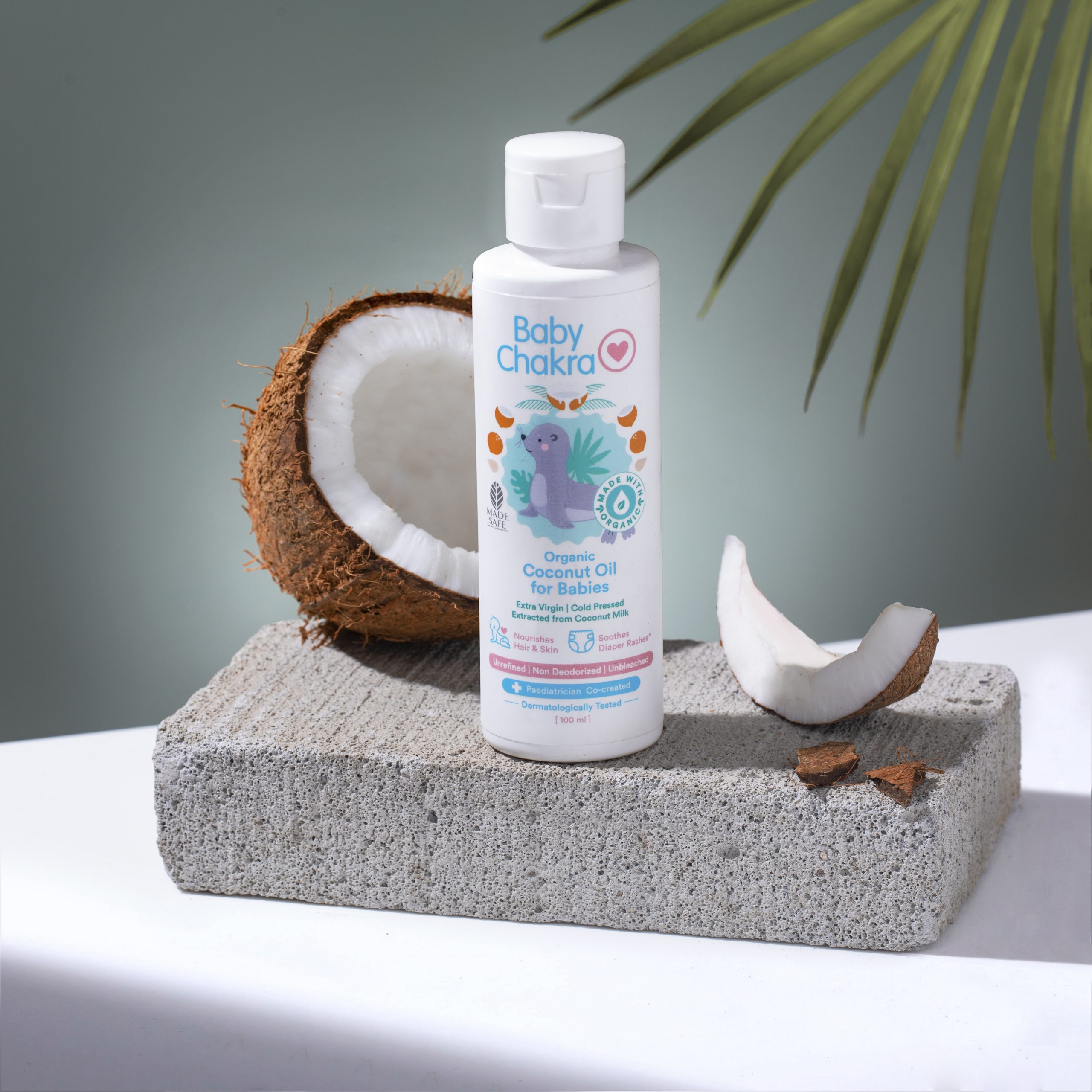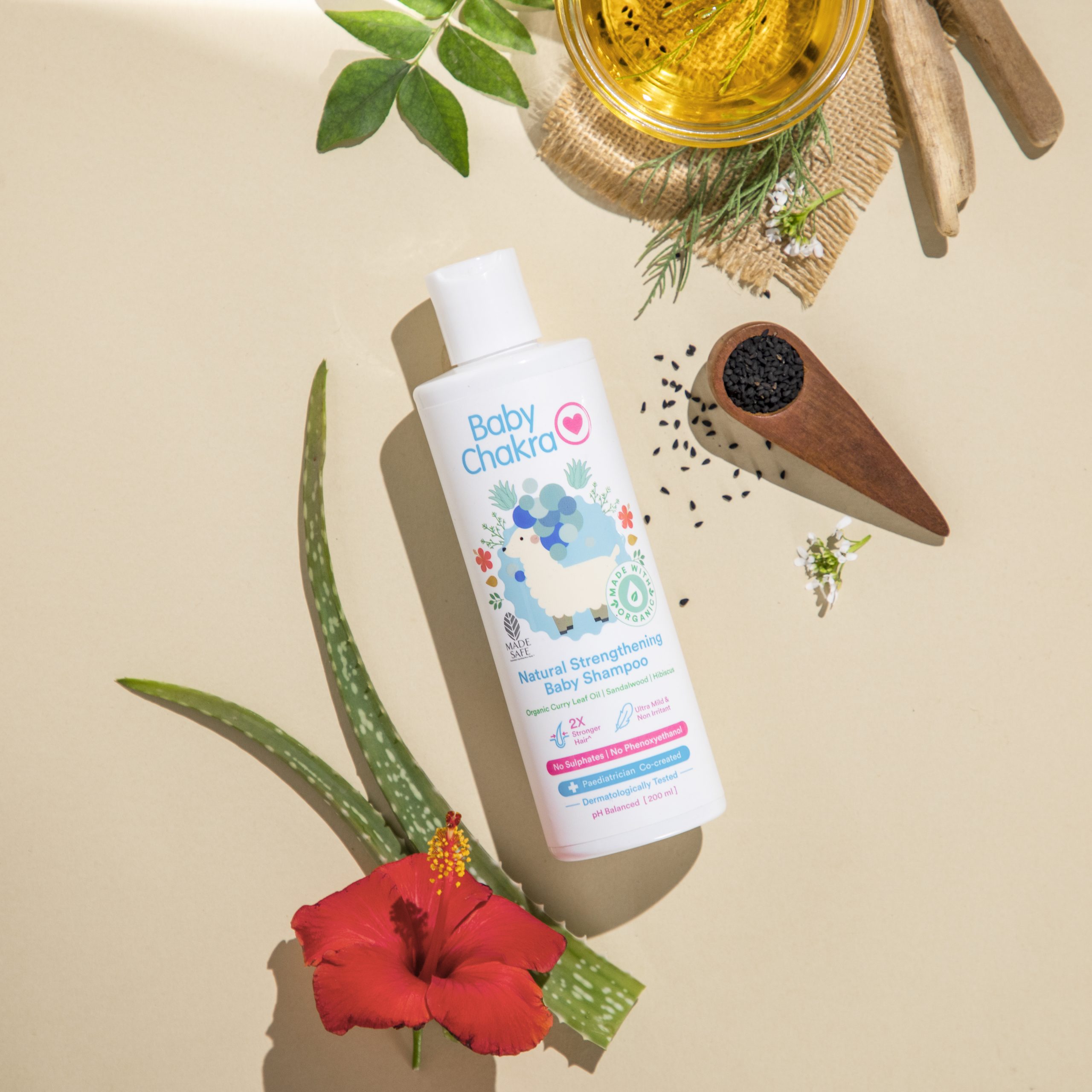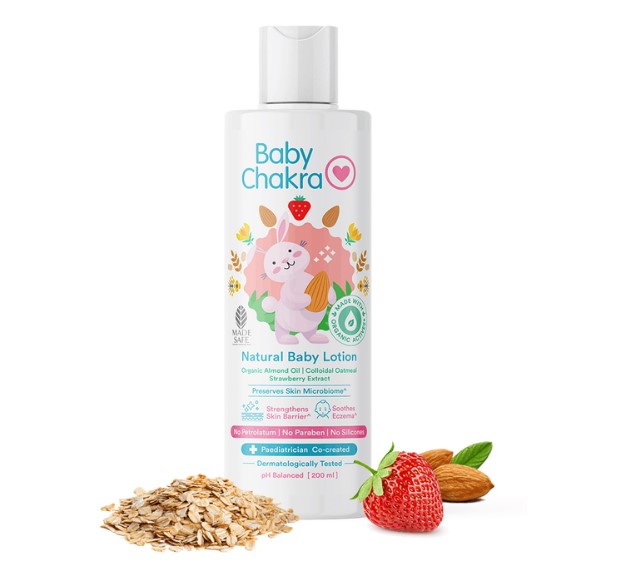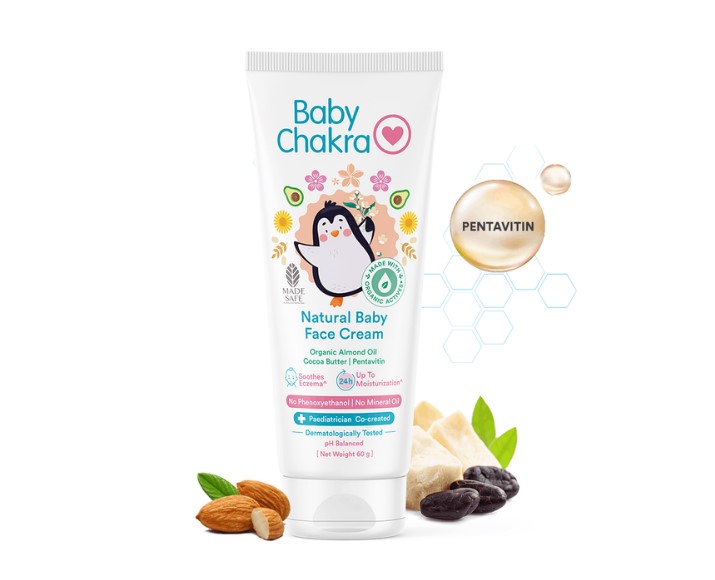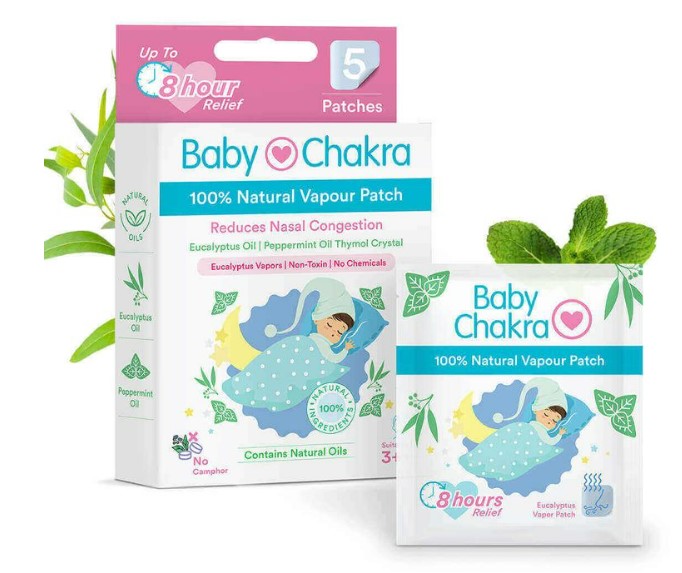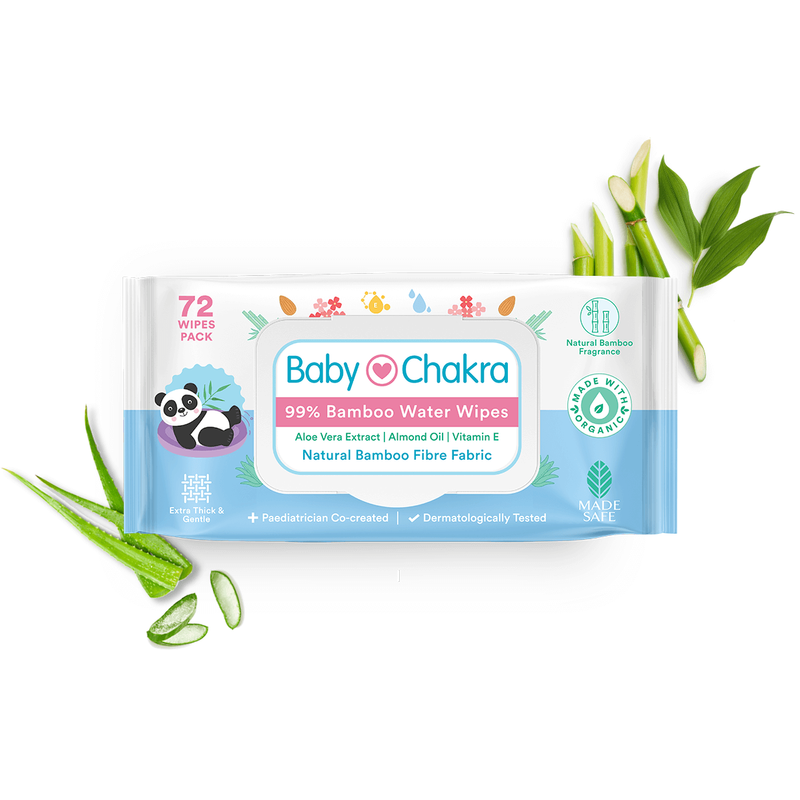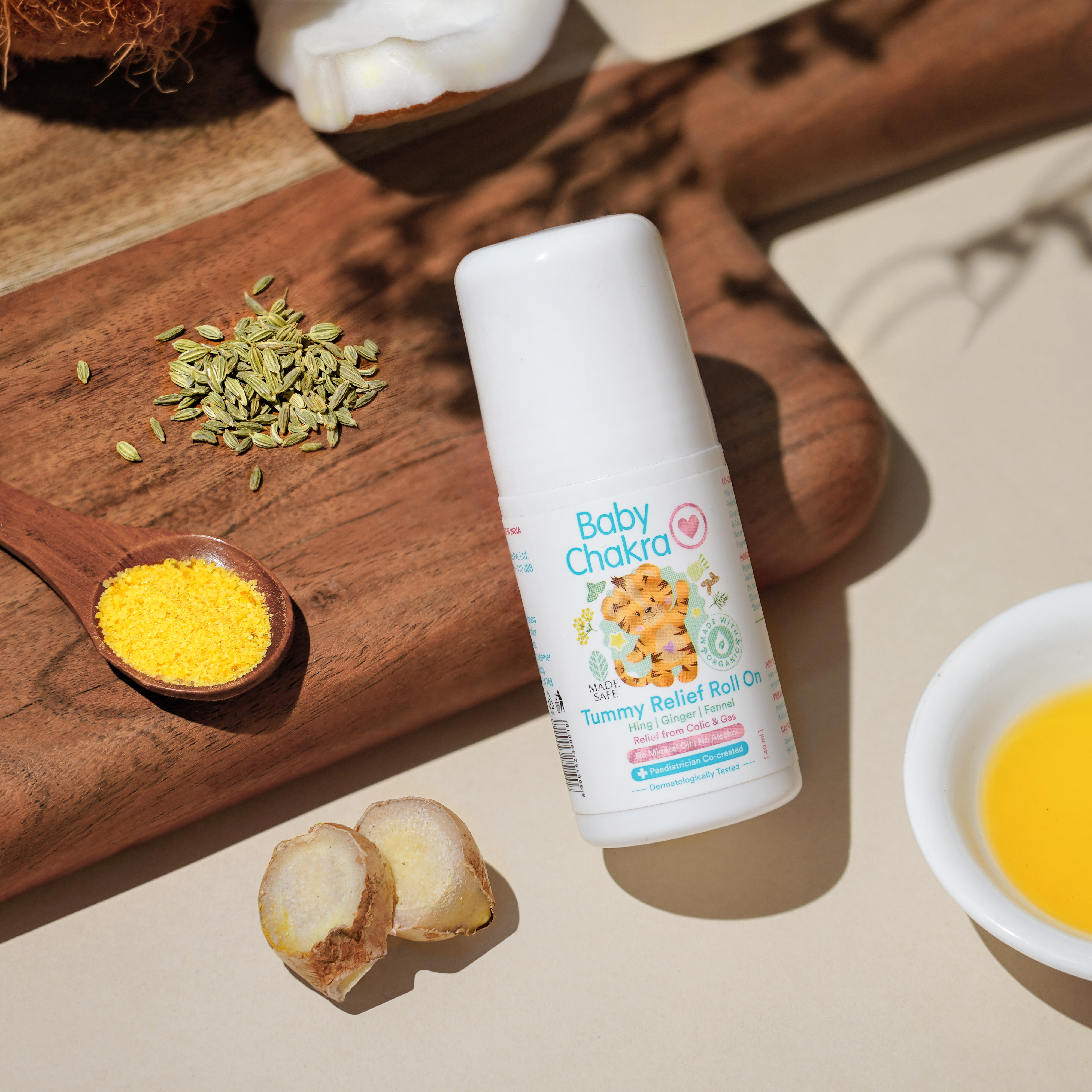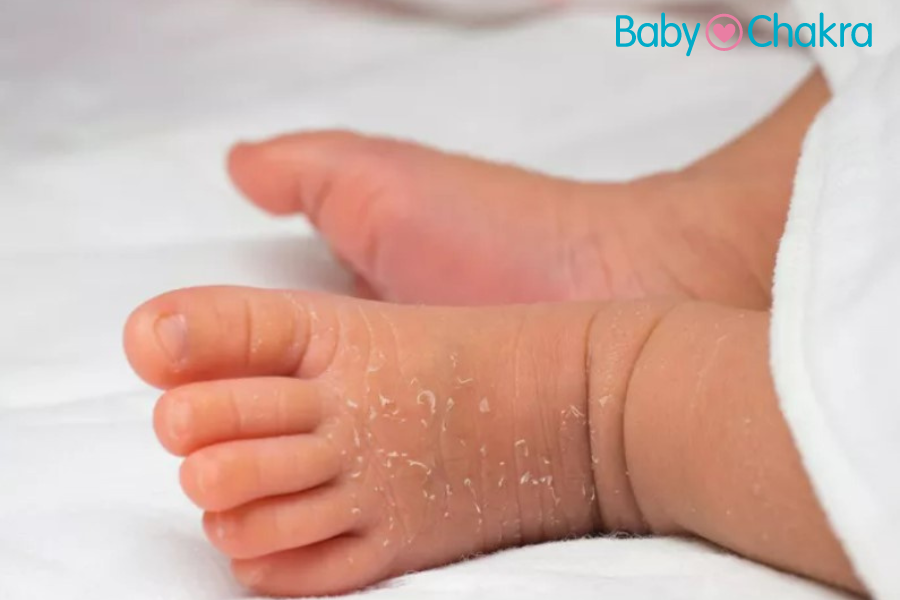
9 Effective Ways To Deal With Dry Skin In Babies
9 May 2023 | 8 min Read
Sudeshna Chakravarti
Author | 799 Articles
Dry skin in babies is fairly common as their skin is different and way more delicate and sensitive than that of an adult. This, however, makes their skin prone to damage by external aggressors, leading to rashes, irritation, and also dryness.
But the good news is that there isn’t a lot to worry about as this skin condition can be easily treated at home, by ensuring adequate moisturisation and nourishment of your little one’s skin. Read on to know more about the possible causes of dry skin in babies, preventative measures, and effective remedies to treat them.
What Causes Dry Skin In Babies?
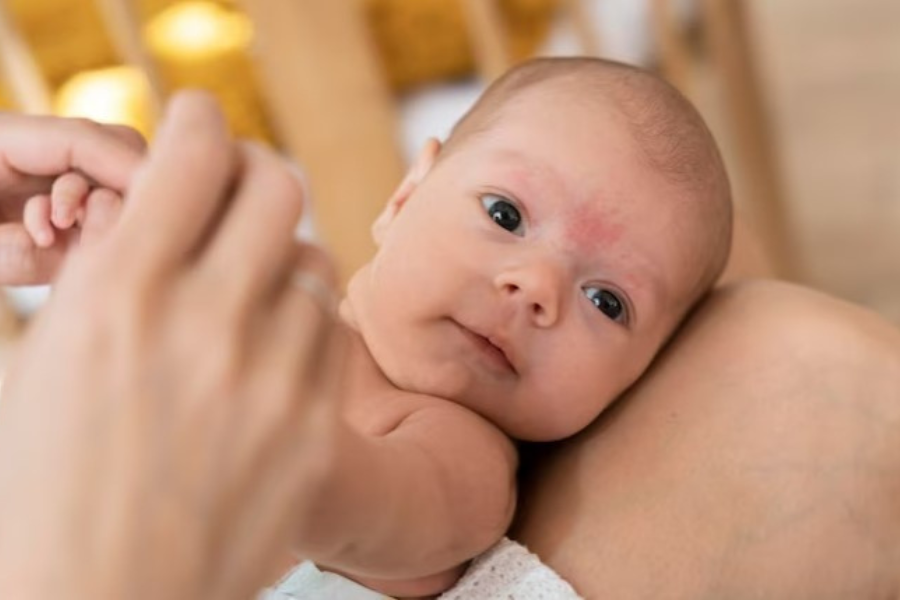
Your baby’s skin is still developing, which makes them more susceptible to dryness and skin peeling / Image credit: Freepik
Dry skin or skin peeling in babies is completely normal and doesn’t require any medical treatment. This phenomenon usually occurs when fluids, such as vernix (a substance that covers and protects your baby’s skin from right inside the womb) and amniotic fluid get wiped off after birth.
The lack of these protective layerings exposes your little one’s skin to the natural elements outside the uterus, rendering them susceptible to skin dryness and peeling in the initial few weeks after their birth.
Symptoms Of Dry Skin In Babies?
If your little one has dry skin, you may notice the following symptoms:
- White scale in their skin that peels at the edges
- Rough skin with a scaly texture
- Excess flakiness on rubbing their skin
- Red, dry patches of skin
- Skin appearing overstretched and tight
- Deep cracks on their skin
Other Possible Causes Of Dry Skin In Babies
In some cases, dry skin in babies is also caused due to the loss of moisture in their skin, leading to the cracking of the epidermis (the topmost layer of the skin) or peeling. Some of the factors that may affect your baby’s epidermis include:
- Weather conditions: A relative drop in humidity due to extreme hot or cold weather can cause your baby’s skin to lose moisture and dry out.
- Long baths: Bathing your baby for a long time can wash away the protective oils from their skin’s surface and cause dryness. Additionally, using chemically-treated or chlorinated water for a bath can also dry your baby’s skin.
- Use of alcohol-based lotions: Alcohol-based lotions should be strictly avoided as they dehydrate your baby’s skin surface and make them more susceptible to dryness.
Skin Conditions That Cause Dry Skin In Babies
In addition to the aforementioned causes, dry skin in babies can also be a result of certain skin conditions, such as
- Cradle cap: This condition usually affects your baby’s scalp and leads to the development of patchy and dry flakes. In some cases, babies may develop multiple layers of dry skin on their scalp due to cradle cap.
- Eczema: This is an allergic skin condition, which is characterised by itchy rashes on skin folds, the forehead, and the cheeks. In fact, extreme dryness is a leading symptom of eczema in babies and may need medical treatment.
- Pityriasis alba: This skin condition is characterised as a type of eczema that only affects your baby’s face, arms, and torso. It often causes scaly and dry lesions on your baby’s skin.
9 Ways To Treat Dry Skin In Babies
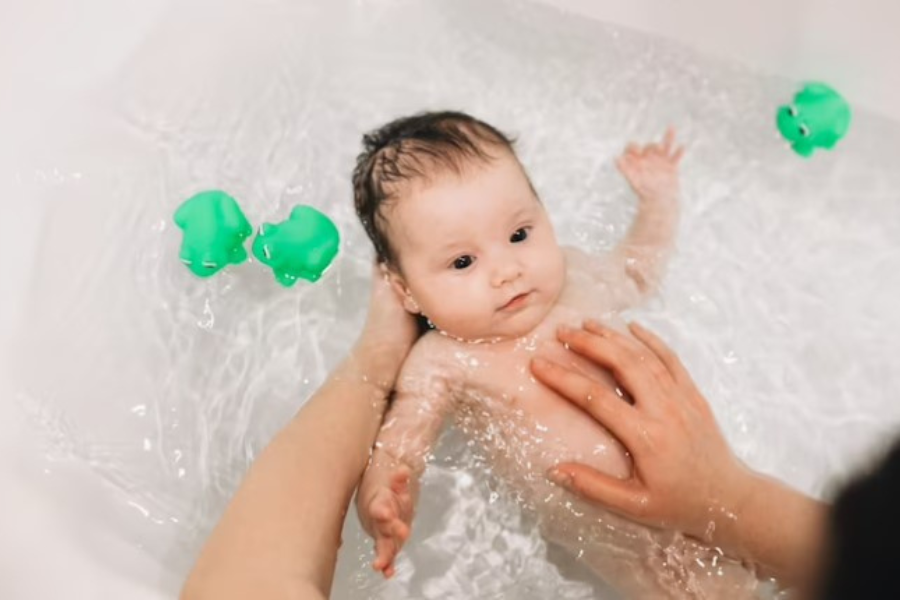
Avoid bathing your baby for too long as that may wash away the natural oils from your baby’s skin / Image credit: Freepik
Limit Your Baby’s Bath Time
Spending too much time in the bath can wash away the natural oils, and leave your baby’s skin bare and susceptible to dryness. Hence, you should limit your baby’s bathtime to 10 minutes and only use warm, and not hot water.
Avoid Using Harsh Soaps
Steer clear of soaps that are made with harmful chemicals. Instead, choose BabyChakra’s moisturising creamy bathing bar, which is gentle on your baby’s skin and offers long-term moisturisation.
The bathing soap is pH-balanced and formulated with natural ingredients like Pentavitin, strawberry extracts, almond oil, and oatmeal that gently cleanse your baby’s skin, strengthen their microbiome, and prevent rashes or irritation.
Massage Your Baby’s Scalp With An Organic Oil
Using coconut oil can replenish and hydrate your baby’s scalp and also prevent the development of dandruff flakes. Follow a scalp massage routine every day, as it is the safest and the most effective remedy for treating dry scalp conditions in babies.
Use A Mild Shampoo To Treat Dryness In Your Baby’s Scalp
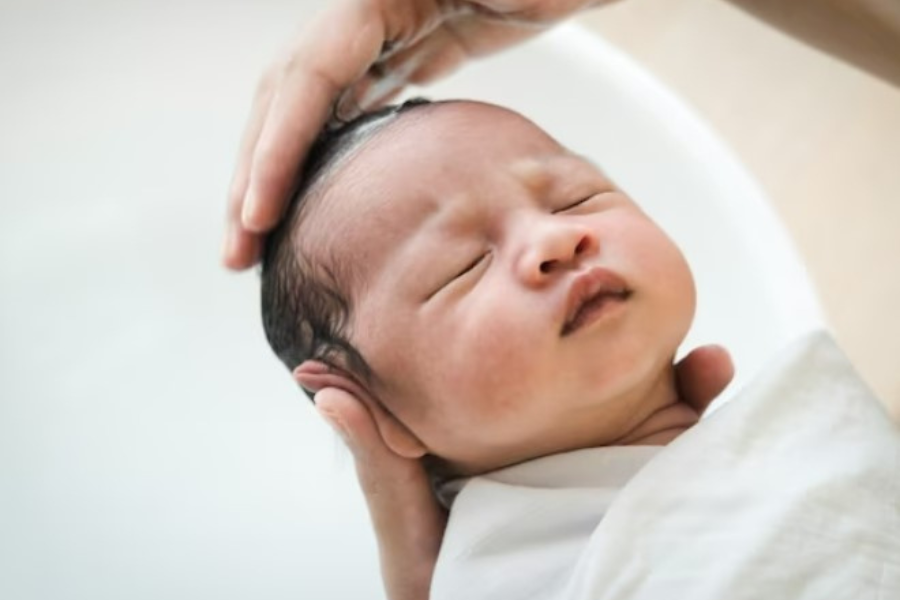
Use a mild shampoo to nourish your baby’s scalp and prevent dandruff / Image credit: Freepik
To soothe scalp conditions like cradle cap, use BabyChakra’s natural strengthening baby shampoo, which is formulated with botanical ingredients like curry leaf oil, sandalwood oil, rosemary oil, and aloe vera extracts.
All these natural ingredients are rich in antioxidants that promote hair growth, heal cradle cap, and also keep your little one’s scalp nourished and healthy.
Moisturise Your Baby’s Skin With A Natural Lotion
You must moisturise your baby’s skin right after their bath to prevent water loss and dryness. You can opt for a mild and plant-based product, such as BabyChakra’s natural baby lotion, which is made with colloidal oatmeal, olive oil, and almond oil that deeply nourish and hydrate your baby’s skin and offer long hours of moisturisation.
The lotion is also enriched with strawberry extracts that protect your little one’s skin microbiome and prevent rashes, allergies, or infections.
Use A Natural Baby Face Cream
To manage your baby’s dry cheeks, use BabyChakra’s natural baby face cream, formulated with colloidal oatmeal, shea and cocoa butter, and calendula extract. While the colloidal oatmeal helps treat dry skin and rashes, the body butters keep your munchkin’s skin soft and supple.
Additionally, the baby face cream also contains almond oil, which targets inflammatory skin conditions, such as eczema in your little one, and offers relief from itching and flakiness.
Dress Your Little One In Clothes Made With Natural Fabrics
If your baby has dry skin, you should switch to clothes designed with soft and natural fabrics, such as cotton. This is because cotton is gentle on your baby’s skin, non-abrasive in nature, and also lets your little one’s skin breathe easily. If possible, dress your munchkin in a single layer of cotton clothing throughout the day to prevent skin irritation.
Invest In A Humidifier
Did you know that dry air is the worst enemy of your baby’s skin? Well, this is a shocking truth, and to protect your baby’s delicate skin, you can consider investing in an indoor humidifier. A humidifier will help maintain a steady level of air moisture content and prevent moisture loss from your baby’s skin.
However, for best results, the American Academy of Paediatrics recommends only using cool-mist humidifiers for your baby, as it keeps an ideal room temperature and doesn’t cause discomfort in your little one.
Keep Your Baby Well-Hydrated
During the summer months, there’s a relative drop in humidity, and in such weather conditions, the risk of transepidermal water loss (moisture loss from the skin’s surface) is higher in babies. Hence, make sure to keep your munchkin well-hydrated and give them plenty of fluids like breast milk and water.
Conclusion
While dry skin in babies is common, it is rarely considered serious and does not require medical intervention. To keep your little one comfortable and manage dry skin in them, you can follow the preventive measures we have mentioned above.
However, if you notice extreme dryness along with bumps on your little one’s skin then you can consult your healthcare provider to understand the exact cause and administer effective treatment.
Recommended Baby Care Products:
Also Read:
Best baby face cream: Here’s everything you need to know about choosing the best baby face cream for your munchkin.
Best baby soap: How do you choose the best baby soap? Tap this post to get all the essential tips and tricks.
Bathing your baby: Make your little one’s bathtime fun and memorable with these essential and handy tips.
Cover Image Credit: Freepik.com
A


Related Topics for you
Suggestions offered by doctors on BabyChakra are of advisory nature i.e., for educational and informational purposes only. Content posted on, created for, or compiled by BabyChakra is not intended or designed to replace your doctor's independent judgment about any symptom, condition, or the appropriateness or risks of a procedure or treatment for a given person.


